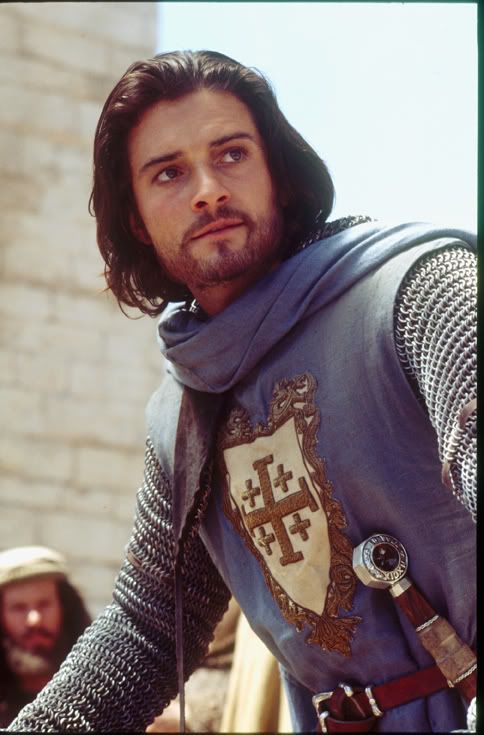
Not historically accurate, but Balian’s got a good arc, too.
The hero is introduced to us in a relatable fashion. He may be flawed, but his heart or his mind is in the right place for the journey about to take place. It begins when he is presented with a dramatic question. His journey takes him through the wilds unknown both without and within, and in pursuit of the answer to the dramatic question he will learn something about himself. By story’s end, he has not only answered the dramatic question, he has changed, grown or even evolved.
This is your standard character arc, the sort of thing Campbell explores in detail and tale after tale emulates. The protagonist can be male or female, young or old, initially naive or villainous, but an arc like this keeps the character from stagnating. It takes the reader as well as the character from beginning to end without making things too boring.
This is remarkable to us, I think, because it’s rare for us to have this sort of coherency in our own lives.
Stories begin and end around us every day. If all of these starts presented the sort of dramatic questions we remember from our favorite tales, Seth Godin wouldn’t have needed to write Poke the Box[1]. Unfortunately, not every day or situation launches a clear arc that leads to significant change, be it in ourselves or the world around us. When those changes do come, it’s only in retrospect that we trace the journey and know in full what we’ve learned and how to use that knowledge in the future.
Campbellian arcs show us the potential of the human spirit. Take a look at Luke Skywalker, or Harry Potter, or Frodo Baggins, or John McClaine, or Marty McFly… quite a few of the heroes we enjoy reading about or watching follow these patterns. In each instance, the characters grow beyond their origins to achieve something greater, either for themselves or beyond themselves. It’s a tried, true and oft repeated pattern because not only does it work, but it also inspire.
This doesn’t mean that said arcs can’t be played with. Relating this sort of growth to modern characters can be difficult and can require modification or outright subversion, e.g. the characters in Clerks. Plots can also twist and play with our expectations – see Memento or The Sixth Sense. Finally, a writer might take a character on this arc and push them in another direction, throwing their journey into conflict with itself, the way Scott Pilgrim must confront his immature behavior to overcome the obstacles before him.
I know I just threw a lot of examples at you, but I’m sure you can come up with more. That’s what the comments are for, folks. Fill ’em up.
1. Yes, I know, I harp on this a lot, but it’s a really good book if you’ve got a creative mind and want to make a living with what that mind provides you. Read my Amazon review here.



Leave a Reply